Filter by

Science in the forest, science in the past
This collection brings together leading anthropologists, historians, philosophers, and artificial-intelligence researchers to discuss the sciences and mathematics used in various Eastern, Western, and Indigenous societies, both ancient and contemporary. The authors analyze prevailing assumptions about these societies and propose more faithful, sensitive analyses of their ontological views about…
- Edition
- -
- ISBN/ISSN
- 9781912808427
- Collation
- xii + 278 p
- Series Title
- -
- Call Number
- 111 GEO s

The first to be destroyed : the Jewish community of Kleczew and the beginning…
The Jewish community of the city of Kleczew came into existence in the sixteenth century. It remained large and strong throughout the next four hundred years, and in the eighteenth and nineteenth centuries it constituted 40-60% of the total population. The German army entered Kleczew on September 15, 1939, shortly after the outbreak of World War II. The communities of Kleczew and the vicinity w…
- Edition
- -
- ISBN/ISSN
- 9781618112859
- Collation
- xxvii + 622 p
- Series Title
- -
- Call Number
- 940.531844 WME f

Altmetrics for digital libraries : concepts, applications, evaluation and rec…
The volume of scientific literature is increasing and researchers have difficulties in estimating their quality and relevance. Library portals, therefore, are getting more relevant by using quality indicators to help researchers during their research process. With the growing presence of social media, altmetrics have been proposed as complementary indicators to traditional measures. Altmetrics …
- Edition
- 5
- ISBN/ISSN
- 9783832553098
- Collation
- -
- Series Title
- -
- Call Number
- 020 KAL a

Athanasius Raczyński (1788–1874). Aristocrat, diplomat, and patron of the …
This book depicts the long rich life and wide ranging work of Count Athanasius Raczyński (1788–1874). By exploring his complex personality, his processes of thought and his accomplishments, it reveals a man at once a wealthy aristocrat, a Pole in the Prussian diplomatic service, an active participant in and perceptive observer and critical commentator on political life, a connoisseur and art…
- Edition
- -
- ISBN/ISSN
- 9789004508453
- Collation
- 571 p
- Series Title
- -
- Call Number
- 709.2 MEN a
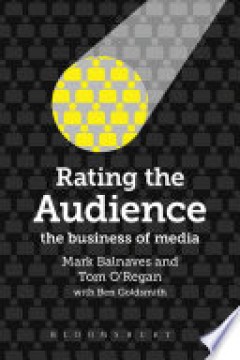
Rating the audience : the business of media
This book is available as open access through the Bloomsbury Open Access programme and is available on www.bloomsburycollections.com. Knowing, measuring and understanding media audiences have become a multi-billion dollar business. But the convention that underpins that business, audience ratings, is in crisis. Rating the Audience is the first book to show why and how audience ratings research …
- Edition
- -
- ISBN/ISSN
- 9781849663410
- Collation
- xvi + 272 p
- Series Title
- -
- Call Number
- 302.23 MAR r

Hans-Michael Geiger- Informational Efficiency in Speculative Markets- A Theor…
The purpose of this work is to provide a critical presentation and some extensions of two perspectives of informational efficiency: On the one hand the neoclassical perspective or «arithmomorphic approach» explains efficiency in terms of a concept mainly based on an explicit economic theory. On the other hand, in the Austrian perspective or «causal genetic approach» attention is drawn to th…
- Edition
- 9
- ISBN/ISSN
- 9783631755723
- Collation
- -
- Series Title
- Allokation im marktwirtschaftlichen System, 29
- Call Number
- HG6015
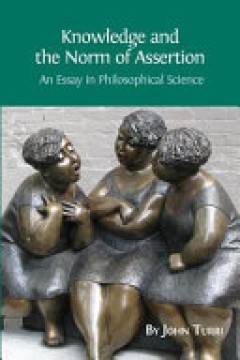
Knowledge and the norm of assertion : an essay in philosophical science
"Language is a human universal reflecting our deeply social nature. Among its essential functions, language enables us to quickly and efficiently share information. We tell each other that many things are true—that is, we routinely make assertions. Information shared this way plays a critical role in the decisions and plans we make. In Knowledge and the Norm of Assertion, a distinguished phil…
- Edition
- -
- ISBN/ISSN
- 9781783741830
- Collation
- 126p
- Series Title
- -
- Call Number
- 306.44 TUR
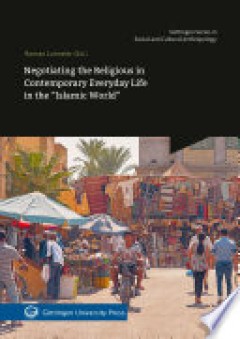
Negotiating the religious in contemporary everyday life in the "Islamic world"
The contributions to the present volume show that the countries that are often presented in the literature as forming part of a stereotypical and seemingly monolithic “Islamic world” in fact represent considerable diversity. From Iran to Senegal, we encounter a vast array of social and religious structures, historical trajectories, political regimes and relative positions of societies and i…
- Edition
- -
- ISBN/ISSN
- 9783863954932
- Collation
- 261p
- Series Title
- -
- Call Number
- 390 LOI
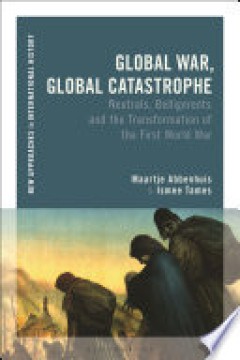
Global war, global catastrophe : neutrals, belligerents and the transformatio…
Winner of the World War One Historical Association’s 2021 Norman B. Tomlinson, Jr. Prize Global War, Global Catastrophe presents a history of the First World War as an all-consuming industrial war that forcibly reshaped the international environment and, with it, impacted the futures of all the world’s people. Narrated chronologically, and available open access, the authors identify key the…
- Edition
- 13
- ISBN/ISSN
- 9781474275880
- Collation
- 248 p
- Series Title
- -
- Call Number
- 940.3 MAA g
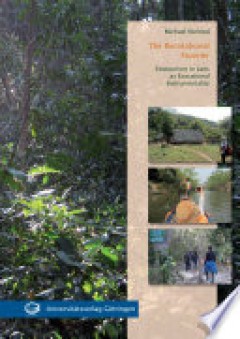
The Recreational Frontier : Ecotourism in Laos as Ecorational Instrumentality
This study treats ecotourism in National Protected Areas of Lao PDR as a “recreational frontier” which instrumentalizes the recreation of human natures in capitalism’s centers for that of nonhuman natures at capitalism’s (closing) frontiers. This world-ecological practice of ecorational instrumentality – i.e. of nature domination in the name of “Nature” – presents a remedy for c…
- Edition
- -
- ISBN/ISSN
- 9783863952464
- Collation
- 295p
- Series Title
- -
- Call Number
- 306.481909594 KLE
 Computer Science, Information & General Works
Computer Science, Information & General Works  Philosophy & Psychology
Philosophy & Psychology  Religion
Religion  Social Sciences
Social Sciences  Language
Language  Pure Science
Pure Science  Applied Sciences
Applied Sciences  Art & Recreation
Art & Recreation  Literature
Literature  History & Geography
History & Geography